CRM software, or Customer Relationship Management tools, are solutions intended to automate the process of building deeper connections with your customers.
Through the right CRM technology, you can gain a better understanding of the steps your customers take when they engage in a buying journey with you.
CRM software can help you to better understand your audience, and keep track of your conversations with them, without relying on an excel spreadsheet.
So, what’s the best CRM software?
What are the Best CRM Software Solutions in 2024?
- HubSpot CRM
- Zoho CRM
- Brevo CRM
- Freshworks CRM
- Close CRM
- Salesforce CRM
- Agile CRM
- Insightly CRM
- Pipedrive CRM
- SugarCRM
- Nimble CRM
- NetSuite CRM
Introducing CRM Software
CRM software is the secret to seamlessly integrating business intelligence with marketing campaigns, sales automation, and customer support in one centralized platform. That means sales reps get to work hand in hand with their marketing counterparts for the sake of common business goals.
All the team members are kept on the same page, with workflow management tools setting a clear path for each individual’s roles.
The success of the entire system depends on how you capitalize on your customer interaction opportunities without compromising the corresponding customer experience.
Hence, your CRM software should gather relevant contact information, and then combine it with its business intelligence for meaningful conversations.
And speaking of which, a quick scan through a customer’s profile should give you insights into what they’ve purchased in the past, how they handled the purchase processes, their contact details, as well as the subsequent customer satisfaction levels.
Ok, I know what you might be thinking right now. Don’t these features make a CRM system sound like a regular business spreadsheet? So, what’s the difference between leveraging CRM software and keeping your contact information in one long spreadsheet?
Interestingly, that happens to be a common question when it comes to CRM applications. And as it turns out, quite a huge chunk of small to mid-sized businesses (SMBs) all over the world actually rely on simple spreadsheets for lead management.
However, the fact is, spreadsheets are nowhere close to CRM software. While the former relies on a manual system of managing information, the latter goes beyond that by combining contact insights with automated follow-up processes.
In essence, modern CRM platforms come with a brain that can collect and record your lead information, then consequently use it to drive sales conversations based on the specific rules you set.
A CRM software is capable of piecing together all every single bit of data it collects about your leads, and then use the resultant insights to systematically target individuals with personalized messages across multiple channels.
Choosing The Best CRM Systems – State of The CRM Solutions Market
A word of caution though. Although there are numerous CRM software options on the web right now, not all of them offer the functionalities we’ve mentioned.
The current CRM market is quite extensive, with all sorts of solutions providing different types of marketing, sales, and pipeline management features.
While the resultant competition between them makes CRM software conveniently cheaper, it also presents a fairly difficult challenge. Sorting through all that forest of potential solutions is no walk in the park.
But, luckily for you, we understand that you may not have the time to conduct a comprehensive evaluation. You’re probably too busy running your business and worrying about acquiring new customers.
So, we took the time to do the heavy lifting for you. Our team here at Ecommerce-Platforms has been evaluating different types of CRM software for the past couple of months, and here’s the resultant report.
This article goes beyond the standard stuff for CRM systems. It’s not just about good CRM software. Rather, we comprehensively evaluated the leading options down to the last detail to establish the ultimate list of the 10 best CRM software.
So, let’s explore every single one of them as we highlight their core features for marketing automation, customer data management, lead scoring, sales forecasting, pipeline management, lead generation, workflow management, project management, task management, sales automation, email marketing, etc.
This guide, therefore, is for serious marketing professionals, sales teams, and business owners that want the best for their companies.
But, if you’re in a hurry, here’s a brief breakdown of our overall best pick, the best budget CRM software, the best CRM software for small businesses, as well as the best free CRM software.
And in case you’d like to discover the formula we used to evaluate them, this article provides pointers on how to choose the best CRM software for your business.
You’ll find them towards the end, right after our list of the 10 best CRM software.
So, without further ado…
No time to read? Here's our no.1 pick when it comes to the best overall CRM software in the market:
No time to read? Here's our no.1 pick when it comes to the best overall CRM software in the market:
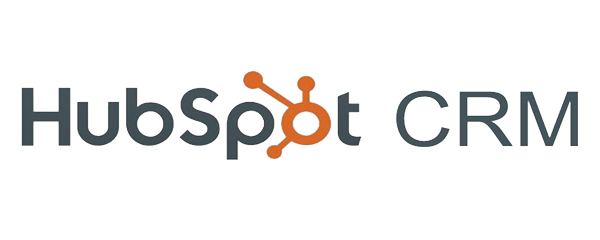 |
Best overall CRM software Although it’s not the most advanced CRM software on the market, HubSpot has managed to establish itself as the overall best CRM software option for numerous businesses and sales teams. Instead of focusing on enterprise-level capabilities, HubSpot’s secret has been maintaining a favorable balance between customer relationship management features, ease of use, and pricing. Overall rating: 10/10 |
What Is The Best CRM Software For a Small Business?
All things considered, HubSpot CRM is the overall best CRM software solution for small businesses.
Now, as for the ultimate best CRM software, I guess that depends on you. What you’d consider as the overall best depends on your company structure, plus the needs of your sales and marketing processes.
So, to help you make an informed selection, here’s our detailed guide on the best CRM software options for small businesses.
What Is The Best Free CRM Software?
While there are multiple free CRM software solutions with decent feature offerings, HubSpot CRM is the most dominant one.
This cloud-based CRM software solution is in a world of its own since it provides pretty much all the CRM functionalities you can think of for free. Plus, all that comes with a pleasant, user-friendly interface.
Come to think of it, I guess HubSpot can afford to pull this off because the company generates its profits from a wide range of other supplementary ecommerce tools.
Whatever the case, however, don’t get it twisted. While HubSpot CRM is doing a great job in this space, it ‘s not the only perfect option. Of late, several of its competitors have seemingly been giving it a good run for its money.
👉 Find out all about them from our comprehensive review of the best free CRM software.
1. HubSpot CRM
HubSpot is among the best-known CRM solutions on the market, offering a range of advanced features to suit any business need. HubSpot CRM promises to bring the benefits of customer relationship management to businesses of all sizes.
Additionally, unlike other market leading solutions, many business leaders agree that HubSpot is extremely easy to use and reliable.
The core CRM functionality of HubSpot is free to use. That’s something you won’t get from market leaders like Keap.
Although you won’t get all the advanced features for your sales cycle in the free option, there are plenty of extra features to explore that make HubSpot an excellent investment, including collaboration tools for small teams and salespeople.
HubSpot was designed from the ground up to be the ultimate CRM for the modern world. You can design a pipeline that covers every step of the customer process, and manage every conversation carefully.
There are templates available to help you build pipelines if you’ve never done so before, and you can also access a range of support solutions too.
HubSpot CRM makes it easy to understand where and why you might lose access to deals during your sales journey. You can also integrate with a range of website builders, including WooCommerce, Magento, Shopify, and many others.
There are even integrations with things like Office 365 and Zapier.
If you need to better understand the impact of different lead options, then you can access the lead management and measurement technology included in the software.
Pricing 💰
As mentioned above, HubSpot CRM is one of the few solutions that starts off as completely free. Although you will need to upgrade to a paid service if you want to access all the functionality available, you’re going to get a great insight into how everything works from the free solution too.
HubSpot can also expand to suit different expectations and needs.
The HubSpot CRM can be either available on its own, or delivered as part of a comprehensive suite of tools that include solutions for marketing, customer service, and sales.
This means that you can build the package that’s best suited to you.
Who Should consider using HubSpot CRM?
HubSpot CRM is one of the market leaders in CRM technology for a reason. Not only is the service easy to use, but it’s extremely rich in feature options too.
You can access a huge range of capabilities, and connect with your audience at every stage of the buyer journey.
👉 Check out our detailed HubSpot CRM review.
2. Zoho CRM
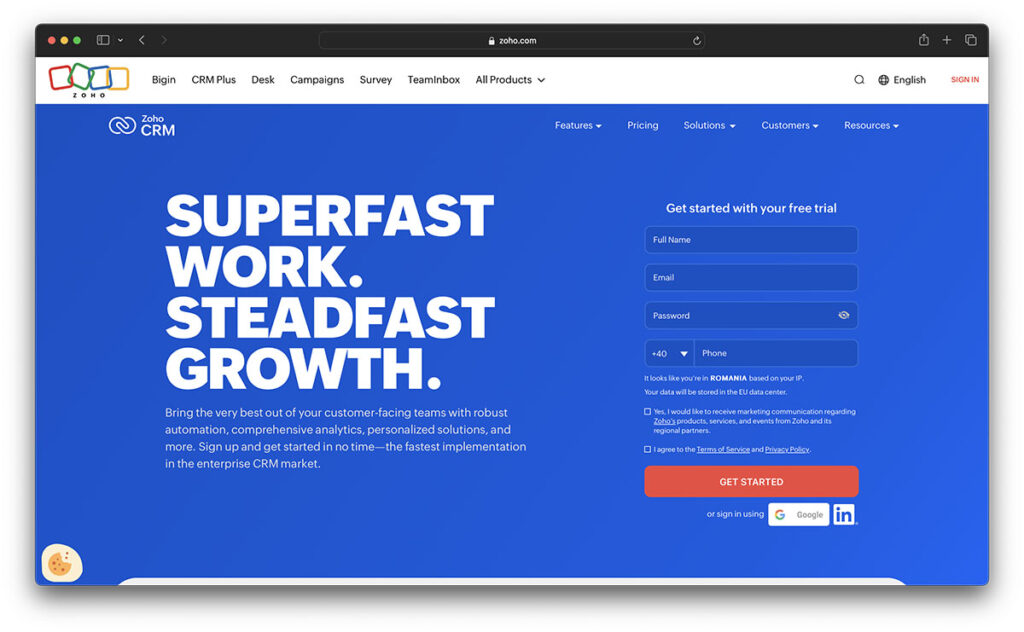
Zoho CRM, an award-winning service, is adopted by a diverse range of business types, including startups, small and medium enterprises, and multinational corporations. Trusted by 250,000+ businesses in 180+ countries, it's a proven CRM solution for brands of all sizes and industries.
Zoho CRM serves as a secure, centralized hub for your sales, marketing, and customer support tasks, enabling you to manage everything efficiently from a single location. Plus, with Zoho's robust security measures in place, you can rest easy knowing the integrity of your data is safe.
Zoho CRM also makes identifying, nurturing, and following up on high-quality leads effortless and automated, allowing you to channel your efforts where they'll yield the most significant results.
In addition, Zoho CRM automatically identifies and pulls accurate data from across your company, allowing you to make data-driven decisions based on reliable information.
Lastly, with Zoho's mobile app, your team can stay connected and access crucial business data on the go, empowering them to be productive even outside the office. This feature is particularly beneficial for salespeople who are constantly on the move, transitioning from one meeting to another.
Pricing
There's a free trial available with no credit card required. After that, you can choose from four paid plans: Standard, Professional, Enterprise, and Ultimate. Packages start at £12 per user per month (billed annually) and range to £42 per user per month (billed annually).
Who Should Consider Using Zoho CRM?
Zoho CRM is clearly designed with flexibility in mind, making it suitable for businesses of all types. Whether you're a B2C company with shorter customer lifecycles or a B2B company looking to strengthen client relationships, Zoho CRM has the features to support your unique business needs.
3. Brevo CRM (formerly Sendinblue)

Brevo (formerly Sendinblue) doesn’t have as much of a business presence for its CRM functionality yet as it does for its email and SMS marketing. The Brevo company has built a reputation for itself for highly affordable and engaging digital marketing opportunities.
Now, the CRM solution also means that you can manage your conversations with customers a little better too.
Through Brevo CRM, you can unlock powerful functionality in the form of live chat, agent opportunity tracking, and customer conversations. There’s a full back-end environment where you can track information about your audience and use your analytics to construct more effective sales strategies for everyone involved.
Brevo CRM is still a little simple compared to some of the other options on the market, but the capabilities are growing.
You should be able to unlock a range of email marketing options with this CRM, as well as SMS and live chat marketing alongside your relationship management hub. There are even custom notification settings so you can keep track of sales opportunities in real time.
One of the things that makes Brevo CRM so compelling as that it’s easy to keep a closer eye on all customer conversations in the same place.
There’s also a free version of the software to get you started, so you can explore the functionality before diving in.
Pricing 💰
There’s a free version of Brevo available for people with limited funds to start building their business.
This free option is quite generous, with access to unlimited contacts, and up to 300 emails a day. You don’t get some of the more advanced features of Brevo, but you do get a nice taste of what you can expect from the service.
The Lite package for Brevo starts at $25 per month, which allows for up to 100,000 emails a day. You can also unlock a premium package for $65 per month, which offers up to 1 million emails per day. Enterprise packages are available on request.
Who Should Consider Brevo CRM?
If you’re looking for something that combines email marketing and customer relationship management in one convenient tool, Brevo has you covered.
More than just a basic email marketing service, the solution gives you a host of extra features like live chat tools and SMS marketing.
There’s a free option to get you started, and tons of ways to build connections with customers through things like segmentation and analytics.
4. Freshworks CRM
By now, you’ve probably heard about Freshworks. It’s a renowned business applications company and it happens to one behind the eighth tool in our best CRM software list.
This elegantly-designed system offers customizable reports and dashboards, intelligent workflow automation, a visual sales pipeline, AI-powered lead scoring, built-in phone call and email, event tracking, sales lead tracking, activity monitoring, and more.
The user interface is one of the most notable things about Freshworks CRM. It's designed with a focus on ease of use as well as comprehensive control of the customer lifecycle.
When it comes to managing the customer journey, Freshworks CRM comes with an incredibly rich but simple lead management feature set. The tools here help you prioritize the most important leads while getting rid of the ones that seem to provide little value.
That said, a single click should be enough to reveal the status of any deal along the pipeline. Otherwise, you could also generate detailed reports for deeper analysis of how your lead engagements are progressing.
To help you with the subsequent lead engagement process, Freshworks CRM comes with a host of pre-built integrations. You can easily embed ecommerce, accounting, social media, marketing, and task management apps.
Pricing 💰
- Blossom: Starting at $12 per user per month, the Blossom plan comes with API access, various Freshworks integrations, SMS, phone Freshcaller support, 2-way email sync, visual sales pipelines, lead management, account management, contact management, and deal management. There’s even support for a lead scoring strategy.
- Garden: Starting at $25 per user per month, the Garden plan is intended to support growing sales teams and companies. These businesses will get access to advanced reports, custom roles, smart matching for leads, lead assignment, 10 workflow automation options, 10 user teams, up to 5 sales sequences per user, a visual sales pipeline, and contact management, among other options.
- Estate: With prices starting at $49 per user when you pay annually, the Estate plan supports larger companies who want access to various advanced features like sales goals, multiple currencies, smart forms, event tracking, reports dashboards, automatic profile enrichment, advanced reports, advanced CRM customization and more.
- Forest: The Forest package is only available on the annual payment plan for $79 per month, and it comes with everything on the Estate plan, including an IP whitelisting system, sales goals, dedicated account manager, 50 user teams, up to 100 workflow automations, and 5,000 bulk emails for each day.
Who Should Consider Using Freshworks CRM Software?
Freshworks CRM is essentially what you get when you combine ease of use, a visual but customizable sales pipeline, plus a rich leads management feature set on a platform that can accommodate both small and large sales teams.
Hence, this is one of the best CRM systems for SMB and enterprise sales teams working in a dynamically demanding business environment. it helps you enhance your sales force by streamlining your leads pipelines through intelligent insights.
5. Close CRM
Founded in 2013, Close CRM is an all-in-one CRM aimed at remote sales teams looking to turn leads into revenue. The platform allows you to call local and global), text, email, and video conference with prospects without any add-ons.
Close CRM provides many in-built features to help you manage customer relationships. Features are aimed at remote sales reps and sales leaders overseeing those teams. More specifically, it's ideal for teams of 100 or less.
Onboarding is quick: there’s a free 14-day trial, website demo, and free migrations.
Key automation features worthy of note include its Power Dialer. This dials numbers on your list of leads and automatically gets to work on the next number if someone doesn’t pick up. Apparently, this can help your reps get through as many as 300 calls in a day.
Close CRM tracks all calls. Plus, you use phone numbers in 200+ countries and leave pre-recorded voicemails. In addition, users can import their existing email contacts into Close with just a click and use Close’s timeline tracking to view email interactions in date order. You can also enroll contacts in bulk in your CRM database.
Close CRM is ideal for sales leaders who want to closely manage and record sales team calls, offer in-call advice, monitor email and call volumes, and make sales forecasting projections.
Lastly, Close CRM integrates with 42 partners, including LinkedIn, MailChimp, Shopify, and Gmail.
Pricing 💰
There’s a 14-day free trial. After that, there are four price plans, with all plans including tools for email, SMS, and calling. After that, prices are billed monthly or annually, per month, per user. The latter comes at a discount.
The prices below are based on annual charges.
- Starter: $25 per month. This includes up to three users, 2,500 leads, and 4,000 contacts, email support and help center, smart views (saved lead lists), two-way email sync and templates, task management, built-in global calling, built-in SMS, and pipeline activity and opportunity reporting.
- Basic: $59 per month. On top of what you get in the Starter plan, you can register up to 30 users and benefit from call forwarding, up to 250 custom fields, external phone numbers, a sales leaderboard, and comparison reports. You also get storage for unlimited leads and contacts and a $10 free monthly calling credit.
- Professional: $89 per month. You get all the features in the Starter and Basic plans, plus you can register up to 100 users. You also get call recording, Power Dialer access, bulk emailing, you can exclude specific email addresses and domains from your sync for privacy, and create email sequences to contact leads at the right time, e.g., to follow up on a sale.
- Business: $129 per month. You get all the features listed above, and you can register unlimited users, call multiple numbers simultaneously, leave pre-recorded messages, access built-in call coaching features, transfer calls, custom onboarding for 6+ users, and much more.
Who Should Use Close CRM?
Businesses that want to help their sales staff and leaders with a feature-rich and well-reviewed platform would do well with Close CRM. It boasts an almost 5-star Software Advice rating.
This CRM is also worth a second glance if your business relies heavily on daily volume calling – the Power Dialer feature is excellent for this. In addition, the dashboard is easy to use, and you receive access to powerful analytics.
While the more advanced features only come on the more expensive plans, it’s still a powerful app that gives value for money.
6. Agile CRM
Agile CRM is another all-in-one customer relationship management solution with just enough tools for all the typical business scales. In addition to contact management, it’s specially-optimized for social media marketing, sales and marketing automation, targeted landing pages, project management, email tracking, scheduling, customer service, plus much more.
One of the first things that’ll strike you about Agile CRM is its free plan, which supports up to 10 users concurrently and 1,000 contacts. It then combines that with basic sales management, marketing management, and customer support features.
So, freelancers, startups, plus small businesses on a budget should feel right at home.
But, don’t feel obligated to start off with the free plan. If your needs extend beyond its capabilities, you can go ahead and settle for any of the premium packages. I find them to be quite affordable.
Now, when you finally start using Agile CRM to drive customer interaction, you should be able to methodically combine its multiple tools to boost both your marketing and sales teams’ efforts.
You could, for instance, manage your contacts using lead scoring, custom contact fields, and contact grouping functionalities. Agile CRM is even capable of diving deep into social media to help you with social media marketing, social CRM, plus social monitoring.
And speaking of which, Agile CRM is one heck of an effective customer relationship management system when it comes to monitoring and tracking. In fact, I’d say it’s one of the best CRM software options for teams that are particularly concerned about tracking and analytics.
Pricing 💰
You can access Agile CRM for free, which supports up to 10 users per day with 500 API calls a day. This package also comes with a single app integration, 1 campaign workflow, up to 5,000 emails, and a host of other functions. You can schedule appointments, set custom deal milestones, and much more. For those willing to pay a little extra, options include:
- Starter: $8.99 per month for all the features of the free plan, plus phone support, 5,000 API calls a day, 5 automation triggers, 3 integrations, 5 campaign workflows, marketing automation, social monitoring, 2-way email integration and more.
- Regular: $29.99 per month to supplement all the features of Starter with up to 10,000 API calls a day, more than 50 integrations, 10 automation rules, 10 campaign workflows, 25 nodes per campaign, mobile marketing, and up to 50,000 contacts.
- Enterprise: $47.99 per month for all the features of the regular plan, as well as 25,000 API calls per day, Access Controls, 50 integrations, 50 notes per campaign, unlimited campaign workflows, and unlimited contacts.
Who Should Consider Using Agile CRM Software?
Going by its pricing and features, we can agree that Agile CRM is best for freelancers, startups and small businesses. The free plan provides a perfect opportunity for beginners to learn what customer relationship management is all about, plus try out various basic customer interaction and marketing tools that come with it.
The farthest Agile CRM can stretch is probably mid-sized businesses. Its Enterprise plan can easily accommodate midsize companies that have typical marketing and CRM needs.
They get to interact with an unlimited number of contacts using an unlimited number of campaign workflows, as well as an unrestricted volume of automation triggers.
7. Insightly CRM
Insightly CRM is an advanced SaaS customer relationship management system with extensive experience in delivering projects, accelerating sales, generating quotes, and building relationships. It’s one of those top CRM software products that provide robust Outlook and Gmail plugins for seamless email integration.
So far, Insightly CRM has attracted more than 1.5 million users, who’ve leveraged its tools for call management, advanced reporting, project management, workflow automation, quote generation, opportunity management, lead management, email tracking, contact management, and relationship linking.
While some of these might seem like complex enterprise-level functionalities, Insightly CRM has managed to simplify everything for SMBs. Consequently, you don’t need extensive technical knowledge or expert guidance to build and manage your campaigns. The simple tools combined with third-party app integrations make it conveniently easy to do anything here.
Pricing 💰
Insightly pricing starts at around $29 per user per month when you pay annually and goes up to $99 per user per month. Options include:
- Plus: $29 per user per month for up to 250 integrations, customized scheduling and emailing, built-in business intelligence dashboards, batch record updates, sales team assigning, apply task and event activity sets, contact management, organisation management, automatic social profile enrichment, visualize lead options, outbound emails.
- Professional: $49 per user per month with annual billing, customized with all the features of the Plus, plan, as well as customized support and services, configurable profiles and page layouts, unlimited account role permissions, 100 customizable insights, and automatic call analytics.
- Enterprise: $99 per month per user with all the features of Professional, plus developer API support, serverless lambda functionality, dynamic page layout rules, price books, quotes, products, custom real-time cards, extensive mobile business card scanning and more.
Who Should Consider Using Insightly CRM Software?
While Insightly CRM has extremely powerful tools, everything has been well-structured to make the platform user-friendly without compromising scalability. Additionally, this is one of the few best CRM software products that are flexible enough to cover pretty much all the core business processes, from opportunities to project delivery.
Now, when you combine all that with its relatively affordable pricing, you have yourself the right CRM tool for both experienced and inexperienced SMB teams.
8. Pipedrive CRM
Pipedrive isn’t just a good CRM software. It’s much more than that. And, in fact, it touts itself as the best CRM software and pipeline management system.
The system itself was built after sales professionals and web app developers embarked on a project with one common vision. They all wanted a platform that would make selling easy.
Well, it turns out Pipedrive has actually managed to achieve that, thanks to its well-balanced feature set. The trick Pipedrive CRM has seemingly used is blending its solid direct sales foundation with smart tracking tools and an intuitive interface. The end result is a strategically streamlined CRM system that offers a clear view of the entire sales process.
Pricing 💰
Pipedrive offers pricing starting at $12.50 and going all the way up to $99 per month. Although it’s not the most expensive CRM on the market, it’s also far from the cheapest option. Your packages include:
- Essential: $15 per month, ($12.50 paid annually). You’ll have access to 24/7 customer support, Pipedrive academy, Chrome extensions for email, mobile app access, activity and sales reports, automatic call logging, real-time sync for all devices, custom dashboards, email inbox, and access to various custom sales pipelines.
- Advanced: $29 per month ($24.90 annually). This package comes with all the features of Essential, plus product catalogues, one click contact data, email automation and templates, AI sales assistants, sales task automation, and activities for workflow management.
- Professionally: $59 per month ($49.90 annually). The Professional option comes with all the features of Advanced, plus revenue forecasting, custom permissions, multiple dashboards, batch emailing, team management, unlimited meeting scheduling and more.
- Enterprise: Starting at $99 per month: This Enterprise solution comes with all the features of Professionals, plus extra user permissions, enhanced security, supplementary customization options, managed data import, phone support, and a dedicated account manager.
Who Should Consider Using Pipedrive CRM Software?
Pipedrive CRM is extremely easy to use, intuitive, and perfectly optimized for pipeline management. It was built by sales professionals for sales teams to conveniently manage their sales funnels at an affordable price.
That alone makes it ideal for anyone who’d like to close deals faster by identifying and subsequently prioritizing the most promising sales opportunities.
9. SugarCRM
In addition to featuring prominently among the best CRM software, SugarCRM happens to be one of the most widely used CRM tools on the web. So far, it has been downloaded and tried out more than 7 million times across numerous countries, and the numbers are still growing.
SugarCRM is an open-source CRM software. That means it provides access to its underlying source code, subsequently allowing developers to extensively tweak its default CRM functionalities. So, as long as you have the skills, you can customize the whole platform down to the smallest detail.
If you’re working with a team, you’ll be pleased that the default SugarCRM platform is optimized for up to 8 user types. The primary admin account can be supplemented by different types of secondary accounts, from customer support to sales reps and possibly marketers running campaigns on various channels. SugarCRM even allows you to roll this out on a large scale with groups of individuals sharing the same account privileges.
Then to help you build effective campaigns, SugarCRM provides an intelligent campaign wizard. It packs a wide range of tools to support your campaign creation process, as well as the subsequent execution phase.
Another area where SugarCRM really shines is contact management.
It’s built to dig deep into your contact data, analyze everything comprehensively, and then compile any related profile info. That means it’s even capable of picking up the tiniest behavioral indicators that often go unnoticed.
Pricing 💰
With SugarCRM you have a range of pricing options to choose from, with each package designed to serve specific needs.
- Sugar Professional: This is an on-premises CX software solution that starts at $40 per month. You’ll get unlimited online support, studio customizations, and cloud or on-premises deployment. There’s access to 15GB of storage, call center automation, reporting and analytics, authorized contacts, and sales automation and forecasting.
- Sugar Enterprise: The Sugar Enterprise package starts at $65 per month with annual billing. Features include SugarCRM’s support portal, SQL-based reporting, advanced workflows, 60GB of storage, role-based views, revenue line tracking, and all the Professional plan features.
- Sugar Serve: This costs around $80 a month with features like 2 sandbox solutions, 60GB of storage, 4 support-authorized contacts, analytics and reporting, self-service portals, case routing, time-based escalation, SLA management, service console access and case management.
- Sugar Sell: Starting at $80 per month, Sugar Sell will give you all the features of Serve, with a few extra bonus features like quote approvals, lead routing, email notifications, and product catalogue management. You also get full reporting capabilities and dashboards, contact management, account management, and a host of extra bonus options.
- Sugar Market: The Sugar Market package comes with marketing features for running a range of marketing campaigns. The price starts at $1,000 for up to 10,000 contacts. Features include real-time website data, social media marketing tools, support-authorized contacts (4), phone support, landing page builder, form builder, email marketing tools, marketing reports, analytics, lead scoring, and more.
Who Should Consider Using SugarCRM Software?
SugarCRM manages to cater for not only marketers and sales teams, but also customer service teams in SMBs. Sales professionals in small businesses would find the Sugar Professional package to be quite handy, while their mid-size business counterparts would probably go for Sugar Enterprise or Sugar Sell.
Customer service teams, on the other hand, should be comfortable with SugarCRM’s Sugar Serve solution, which offers a host of customer support tools. Then marketing teams would be better off with the Sugar Market package, which is perfectly optimized for digital marketing campaigns across social media, email, landing pages, forms, and Google Ads.
10. Salesforce CRM
While HubSpot CRM is the best at simplicity, Salesforce is the king of advanced cloud CRM.
And why is that so?
Well, interestingly, it turns out that before Salesforce came along, most CRM solutions were fundamentally on-premise systems. Businesses spent a lot of resources plus time to install and deploy CRM software on their in-house servers.
All that changed when Salesforce moved everything to the cloud. Then almost immediately, the costs of installing and running CRM software dropped drastically, allowing even small businesses to join the bandwagon. And as they say, the rest is history.
Pricing 💰
Salesforce CRM Pricing starts with the Essentials pack at $25 and increases to around $300 per month, depending on the functionality you need. Options include:
- Essentials: $25 per month per user when you pay annually. Features include a Lightning app builder, data storage, file storage, email integrations, case management, Lightning flow automation, custom reports, dashboards, activity feed, opportunity management, email templates, web-to-lead capture, and more.
- Professionals: $75 per user per account: All the features of Essentials, plus web services API, developer pro sandbox features, record types, permissions, roles, custom profiles, orders, contracts, forecasting, and more.
- Enterprise: $150 per month per user with all the features on the Professional plan, plus approvals and workflow. Lighting platform, full sandbox, advanced reporting, opportunity splitting, custom opportunity fields, sales teams, and more.
- Unlimited: $300 per user per month for all the features of Enterprise, plus various custom objects, multiple sandboxes for testing, custom apps, and more.
Who Should Consider Using Salesforce CRM Software?
Salesforce Sales Cloud, which happens to be the principal Salesforce CRM software, is ideal for sales teams that want to make insightful decisions, accelerate productivity, get more leads, as well as close more deals.
Salesforce is undeniably the best CRM software for advanced business processes. It’s flexible enough to accommodate even large enterprises managing numerous dynamic workflows at the same time.
👉 Check out our detailed Salesforce CRM review.
11. Nimble CRM
Before we get to the specifics, here’s an interesting fact about Nimble CRM. It happens to be closely related to yet another renowned CRM tool called Goldmine. Turns out they were both founded by a guy named Jon V. Ferrara.
While Goldmine CRM doesn’t feature in our best CRM software list, it’s still a legend in the customer relationship management industry.
The reason being, it was among the premier sales force automation CRM tools for small to medium-sized businesses. And believe it or not, that occurred in 1989.
But, although Goldmine CRM has been dominant to this day, Nimble CRM is the one that has managed to perfectly implement modern automation advancements.
Consider the software hosting environment, for instance. While Goldmine CRM is still an on-premise solution, Nimble CRM has been developed to be a cloud-based Saas platform.
This allows it to not only scale easily, but also extend its functionalities beyond the scope of traditional customer relationship management systems.
Pricing 💰
Nimble CRM pricing starts at $25 per user per month when you pay monthly, or $19 per user per month when you’re paying annually. You get all the features you could want with this single package, including API access, G-Suite and Microsoft 365 support, onboarding assistance, and various forms of online support. There’s also a host of team permissions and apps too.
There’s also the Nimble Prospector solution, as well as task reminders, activity tracking, 1000 group messages per user per day, business insights capture, social profile match, and saved search segments. Users can save up to 25,000 contact records and sync calendars too.
Who Should Consider Using Nimble CRM Software?
Nimble CRM is a holistically interlinked platform that provides a host of smart sales force automation capabilities, without the complications that usually accompany advanced marketing automation.
It’s the type of customer relationship management system you could use as an individual or team for powering dynamic sales pipelines. You get to combine smart actionable insights with a reliable AI engine and integrations.
Therefore, all in all, Nimble CRM is perfectly ideal for sales teams that need to make well-informed decisions about their pipelines.
12. NetSuite CRM
Tenth on our list of the best CRM software is NetSuite CRM, which is yet another cloud-based SaaS customer relationship management solution.
You can think of Netsuite CRM as a platform that facilitates a smooth uninterrupted flow of info across the entire customer lifecycle. Its info funnel starts from the lead level and it subsequently follows a customer through every single stage, including opportunity, sales order, cross-selling, upselling, fulfillment, renewal, and customer support.
All this information is held in a well-protected data center, which is part of Netsuite CRM’s dynamic multi-tenant architecture.
The resultant details give you a strategic 360 degree view of all the critical parameters relating to your leads and customers.
Netsuite CRM, on the other hand, uses the intelligence to power its entire customer relationship management ecosystem. Sales force automation tools, for instance, heavily rely on the data to run effective campaigns based on actionable insights.
There’s also a group calendar feature that can be accessed by all team members. So, every single person should be able to view their to-do lists, and subsequently complete the assigned tasks.
The AI system, more specifically, will save you from wasting time on low-value opportunities. By monitoring your prospects’ behaviors, Netsuite CRM manages to provide actionable insights into the most promising opportunities.
Pricing 💰
NetSuite isn’t as straightforward with pricing as the other CRM mentions here. Your price will need to be given to you via custom quote, based on the number of users you intend to host, the features you want, the contract length you choose, and so on.
You’ll probably pay around $129 per user per month according to the reviews we’ve read. This gives you up to 1,200,000 emails per year, basic CRM functionality, project tracking, and partner relationship management features.
Who Should Consider Using NetSuite CRM Software?
Netsuite CRM is not only one of the best CRM software solutions, but it also happens to be among the most extensive customer relationship management systems.
Its sales force automation tools are intended to help you maximize your sales opportunities, while customer service management attempts to boost customer satisfaction through data-driven support.
Marketing automation, on the other hand, is all about leveraging real-time insights to power automated campaigns for qualifying leads.
It can comfortably host multiple departments at the same time, with each one leveraging a specific feature set.
How to Choose the Best CRM Software
Well, there you have it. The ultimate guide to 10 of the best CRM software.
A word of caution though. While each of these CRM solutions provides some of the best customer relationship management features, it would be unwise to pick one randomly.
And why is that so?
Well, as we’ve established, every single one of them is unique in its own sense. Hence, they’d have varying impacts on your business.
So, how exactly should you compare different options to choose the best CRM software?
The truth is, there’s no two ways about it. You have to systematically evaluate not just the pricing, but also the type of functionalities each tool offers.
And to help you with that, here are the main features you should focus on when it comes to customer relationship management systems:
- Lead Management and Sales Management: The best CRM software products are capable of hunting for leads across multiple sources. They employ an omnichannel strategy that integrates several digital engagement channels to form seamless lead management and sales management platform.
Apart from emails, you should be able to tap into other popular channels like social media, web forms, inbound calls, text messages, etc. The specifics depend on what your target leads commonly use.
Then after lead generation, the CRM software should allow you to follow up all the way to the end of the customer lifecycle. That means applying different automated approaches while keeping tabs on every single prospect’s progress on the sales pipeline.
- Marketing: Since customer relationships are nurtured through personalized engagements, the top CRM software happen to double up as digital marketing tools. The marketing functionalities here are used to reach out to leads, customers, plus prospects.
And when it comes to that, the best CRM software for your business should come with AI-driven marketing automation. Plus, the campaigns should be fully intertwined with your sales pipeline.
- Workflows: Customer relationship management admittedly entails numerous stages and multiple intricate elements, which are best managed with project management tools.
Hence, the best CRM software usually provide dynamic project management capabilities through customizable workflows. This is where you get to streamline your sales pipelines accordingly while coordinating your sales teams, tracking progress, and organizing the corresponding entities.
- Reports and Analytics: All things considered, customer relationship management is a data-driven process. The type of leads you go for, how you target them, and how you engage with them depends on the insights you’re able to gather about them. So, reports and analytics is one thing you cannot afford to compromise.
You should particularly prioritize CRM products that offer accurate real-time analytics about all your core engagement channels, marketing campaigns, sales pipeline, contact behaviors, as well as your team’s performance. That said, it would also be advisable to choose a software product that can further generate sales forecasting insights. This will help you identify the most promising sales opportunities.
- Ecommerce: The best CRM software go beyond sales and marketing to focus on other closely-related ecommerce processes. Some platforms, for instance, supplement their core CRM functionalities with customer support tools, while others tend to lean towards team collaboration.
That said, you should choose the extra ecommerce functionalities based on your business setup, plus the specific entities you consider to be critical to your relationship with customers.
- Integrations: At the end of the day, a customer relationship management tool forms just one part of the entire ecommerce ecosystem. So, a CRM software solution can only be a great fit for your business if it perfectly integrates with all your core systems. Plus, it should come with pre-built integrations for third-party applications you intend to use in our campaigns.
With that in mind, here are some of the questions you should ask yourself to analyze the suitability of each CRM software option:
- What type of businesses does it target?
- What types of automated marketing campaigns can you run and manage with the CRM software?
- Is the sales pipeline customizable?
- How’s the overall interface design? Is it easy to use and navigate? Does it offer any onboarding features?
- How many team members can the CRM software host concurrently?
- Does the CRM software integrate with your current ecommerce platform? How well does it work with other marketing tools?
- Will you be able to identify the best deals to prioritize?
- How many contacts and leads can the CRM tool hold? How many can you engage concurrently?
- Does the CRM software offer comprehensive data protection? What other security features does it come with?
- How much does the entire CRM system cost? Does it fit your budget?
- What’s the possible ROI based on the value you get from the software? Are there any extra charges that you might incur along the way?
- What do past and current users say about the software? Any notable negatives you can identify from the reviews?
Then to top it off, be sure to check out our unbiased reviews about various tools in this space. We’ve covered all the best CRM software solutions on the market in detail.


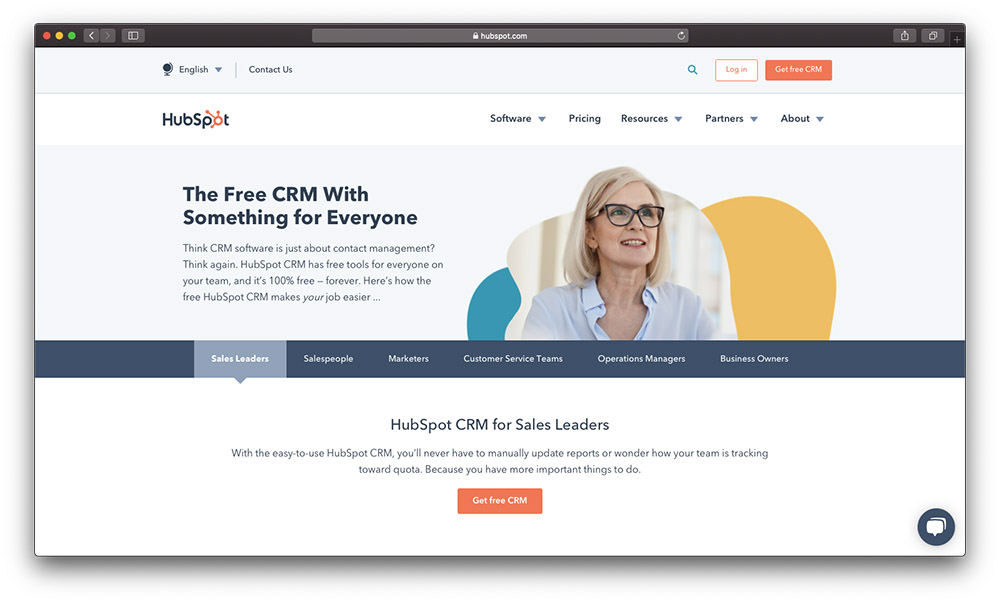
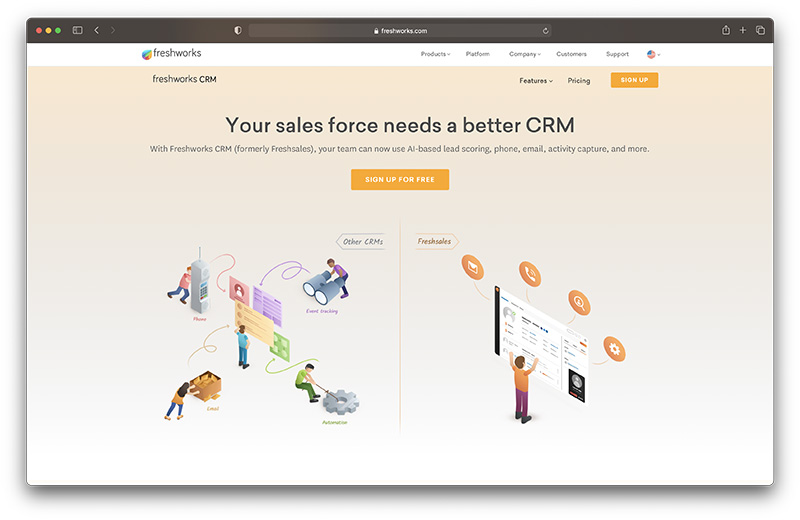
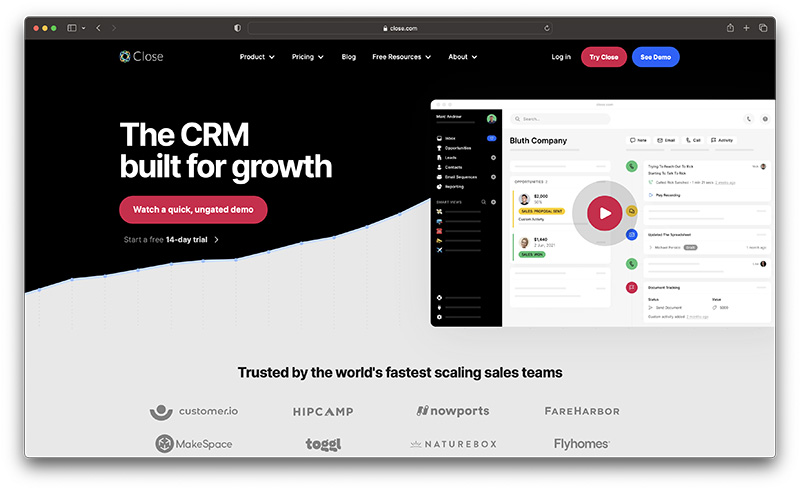
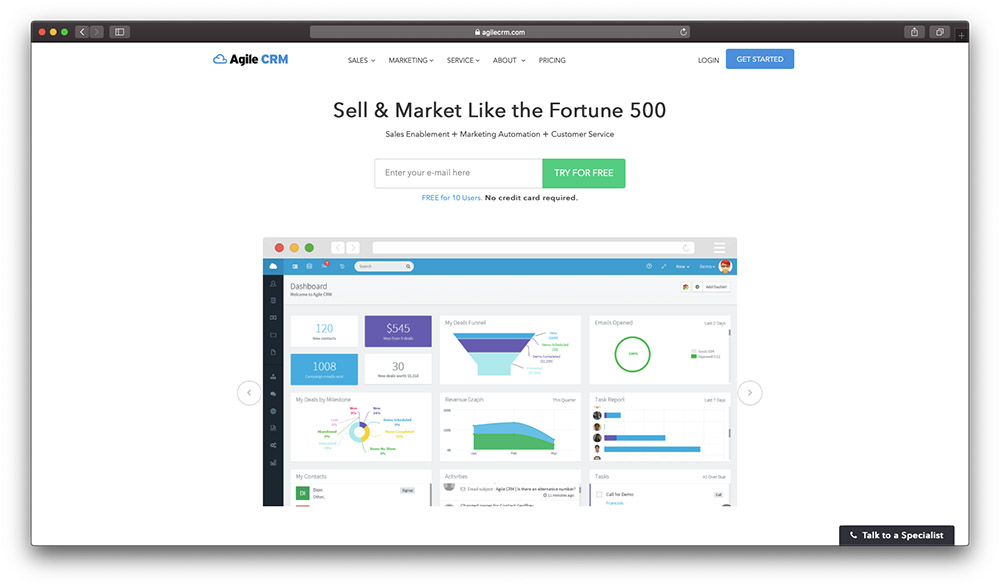

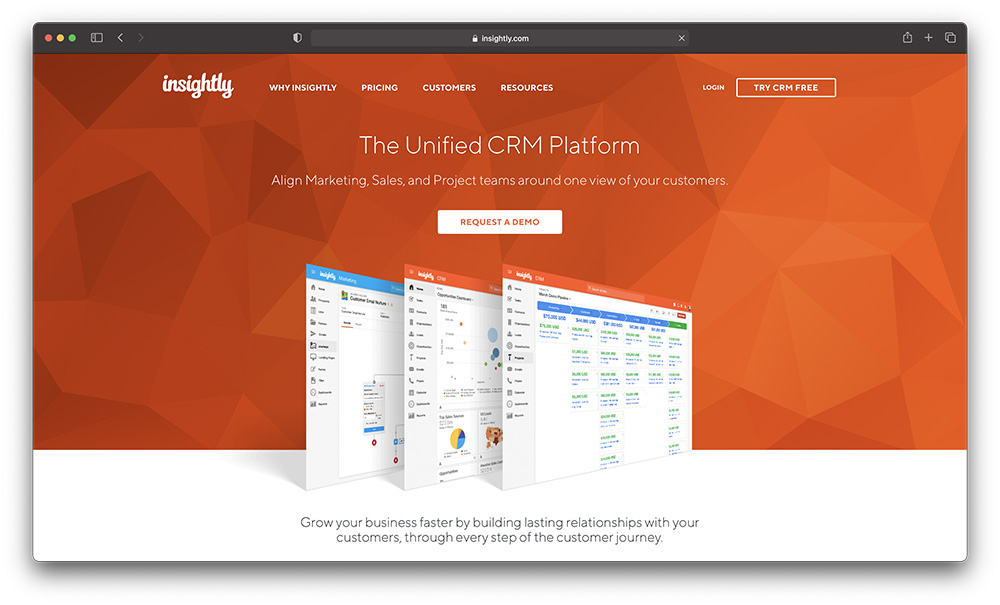
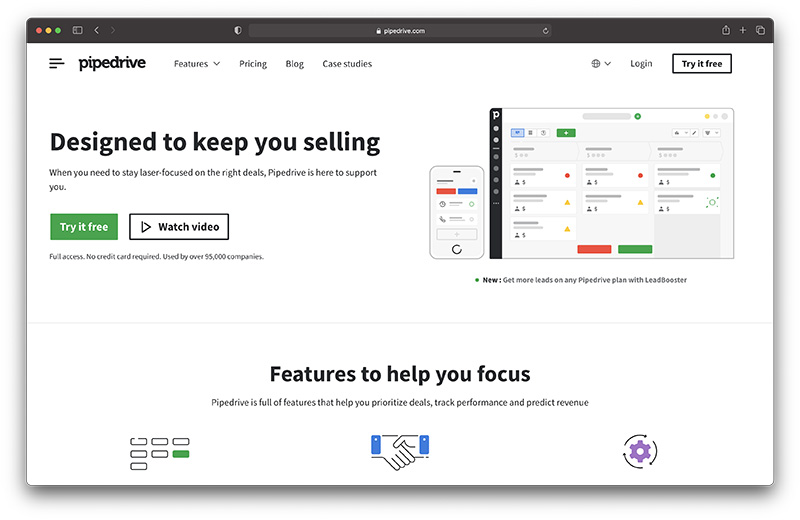
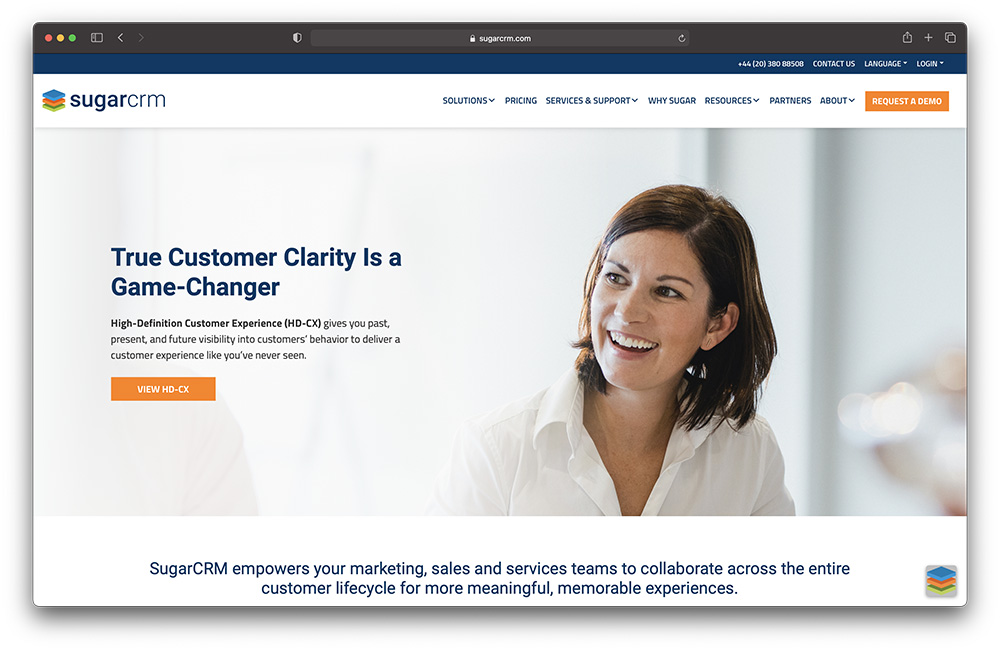

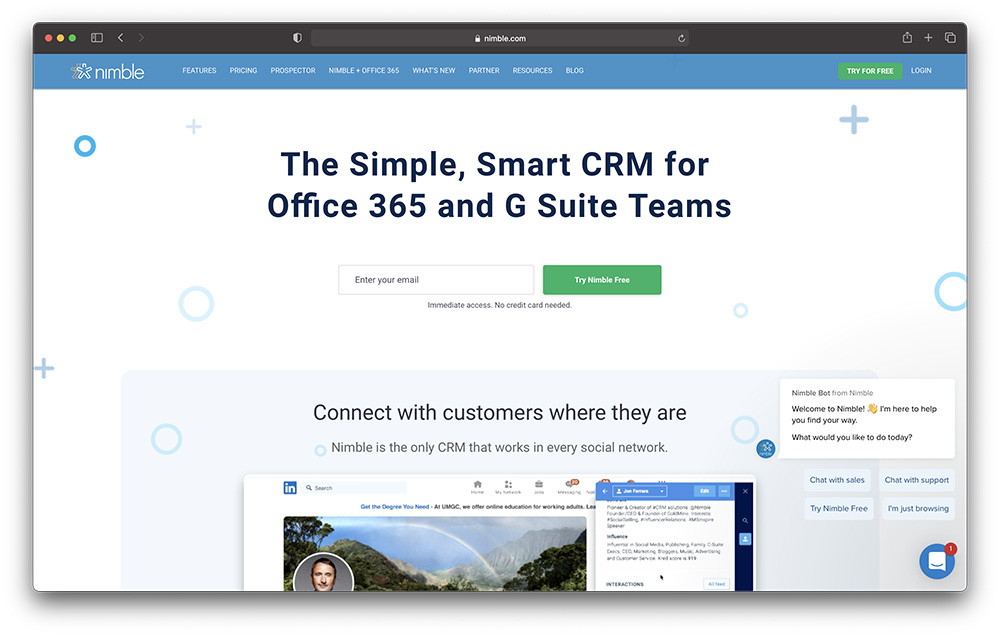
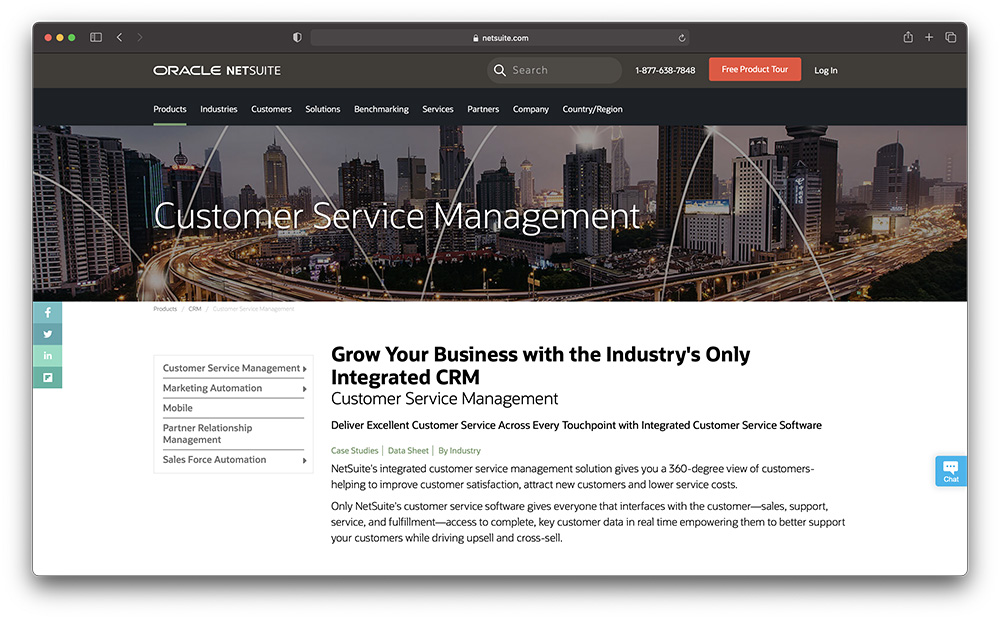


Comments 0 Responses